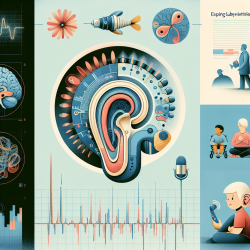Introduction
In the realm of education, the satisfaction of students with their learning experiences is a critical factor that influences both educational outcomes and the overall effectiveness of educational systems. Recent research using structural equation modeling has shed light on the key components that drive student satisfaction within the Undergraduate Tutorial System (UTS). This blog will explore these findings and provide actionable insights for practitioners aiming to enhance their educational practices.
Understanding the Research
The study, "Using structural equation modeling to investigate students’ satisfaction with an undergraduate tutorial system," conducted a comprehensive survey among undergraduate students to assess their satisfaction with UTS. The research identified several key factors that significantly impact student satisfaction, including mentor-student communication, mentor assistance, and humanistic care.
Key Findings
- Mentor-Student Communication: Effective communication between mentors and students was found to have a substantial positive impact on student satisfaction. Regular and meaningful interactions help build trust and foster a supportive learning environment.
- Mentor Assistance: The guidance and support provided by mentors in academic and personal development were crucial in enhancing student satisfaction. Personalized mentorship that addresses individual student needs can significantly improve their educational experience.
- Humanistic Care: Demonstrating genuine care and concern for students' well-being was another important factor. This approach not only strengthens the mentor-student relationship but also contributes to a more positive and nurturing educational atmosphere.
Implications for Practitioners
For educators and practitioners, these findings offer valuable insights into improving student satisfaction. Here are some practical steps to consider:
- Enhance Communication: Establish regular check-ins and open channels for communication with students. Encourage feedback and foster an environment where students feel comfortable expressing their concerns and needs.
- Provide Tailored Support: Develop personalized mentorship plans that cater to the unique needs and goals of each student. This can involve academic guidance, career planning, and personal development support.
- Show Genuine Care: Take the time to understand students' personal challenges and aspirations. Providing emotional support and demonstrating empathy can go a long way in building a strong mentor-student relationship.
Encouraging Further Research
While this study provides significant insights, it also highlights the need for further research to explore additional factors influencing student satisfaction. Practitioners are encouraged to engage in ongoing research and collaboration to continuously refine and improve educational practices.
To read the original research paper, please follow this link: Using structural equation modeling to investigate students’ satisfaction with an undergraduate tutorial system.










